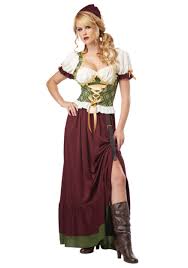wench
英 [wentʃ]
美 [wentʃ]
- n. 少妇;乡下姑娘
- vi. 通奸
星级词汇:

中文词源
wench 少妇,少女
来自PIE*weng,弯,转,柔弱,词源同weak,vetch。通常含贬义。
英语词源
- wench (n.)
- late 13c., wenche "girl, young woman," especially if unmarried, also "female infant," shortened from wenchel "child," also in Middle English "girl, maiden," from Old English wencel, probably related to wancol "unsteady, fickle, weak," from Proto-Germanic *wankila- (cognates: Old Norse vakr "child, weak person," Old High German wanchal "fickle"), from PIE *weng- "to bend, curve" (see wink (v.)).
The wenche is nat dead, but slepith. [Wyclif, Matt. ix:24, c. 1380]
In Middle English occasionally with disparaging suggestion, and secondary sense of "concubine, strumpet" is attested by mid-14c. Also "serving-maid, bondwoman, young woman of a humble class" (late 14c.), a sense retained in the 19c. U.S. South in reference to slave women of any age. In Shakespeare's day a female flax-worker could be a flax-wench, flax-wife, or flax-woman. - wench (v.)
- "to associate with common women," 1590s, from wench (n.). Related: Wenched; wencher; wenching.
权威例句
- 1. Scarlett dropped Prissy's arm and the wench sank whimpering to the steps.
- 思嘉放开百里茜的胳臂,这女孩便呜呜咽咽地在楼梯上坐下了.
- 2. Bought her and her little wench, Prissy.
- 买了她和她的小女儿百里茜.
- 3. How can you know, wench? Facts bear strong against him.
- 你怎么会知道呢, 姑娘? 事实证明对他非常不利.
- 4. Where is that simple - minded little wench?
- 那个傻小娼妇哪里去了?
- 5. She was no sooner gone but comes a wench and a child, puffing and sweating.
- 她刚一走开,立刻就来了一个姑娘同一个小孩, 喘着气,流着汗.
